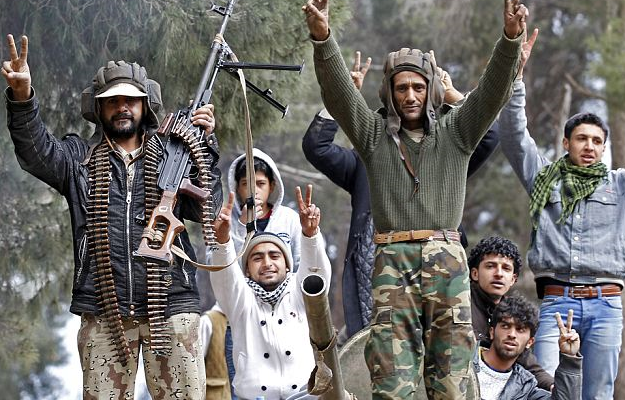Rebels to Get Qaddafi Assets
NATO, Arab and African ministers agreed Wednesday “to work urgently” with the Libyan rebel leadership to set up a mechanism by which some frozen assets belonging to Col. Muammar el-Qaddafi and his family might be transferred to the rebel cause.
The agreement came at the first meeting among representatives of the NATO-led coalition, regional leaders and the rebels in a closed-door conference here that was billed as the beginning of a continuing dialogue. There is growing friction among the allied countries and the rebels themselves over how much military force to apply on the Qaddafi government.
But those divisions were set aside — for the moment, at least.
“This is the money of the Libyans, not of Colonel Qaddafi,” said Italy’s foreign minister, Franco Frattini, who added that the assistance would be aimed “at humanitarian and daily needs.”
He said, “People need food, or they need to pay salaries to workers.”
Rebel leaders in Benghazi received the news as a sign that the international community was prepared to sell them weapons.
“We have made a request to those friendly nations and those who have made their official recognition, and we are in the final stages of requesting military equipment,” said Abdul Hafidh Ghoga, a member of the rebels’ governing body, the Transitional National Council, and its spokesman.
“I don’t think there’s going to be any problem about getting military equipment in,” Mr. Ghoga said.
He declined, though, to reveal whether any concrete agreements for weapons shipments had been reached with the three countries that have recognized the council: Italy, France and Qatar.
“Today’s meeting in Doha was an extreme boost to the Transitional National Council as the sole representative of Libya,” Mr. Ghoga said.
While some of the participants in Wednesday’s meeting talked about the rebels’ right to arm themselves, it remained unclear whether any country had specifically agreed to provide them with weapons.
“The discussion about arming the rebels is definitely on the table to defend themselves,” a spokesman for the Italian Foreign Ministry said Tuesday.
It seemed unlikely that the allied countries were prepared to send offensive weaponry to the rebels, at least not as a coalition. In comments to reporters, Belgium’s foreign minister, Steven Vanackere, noted that the United Nations resolution that authorized international action in Libya “speaks of protecting civilians, not arming civilians.”
Mr. Ghoga also said that any weapons sales should include technical advisers and trainers, but added, “Any military intervention is rejected on our part.”


